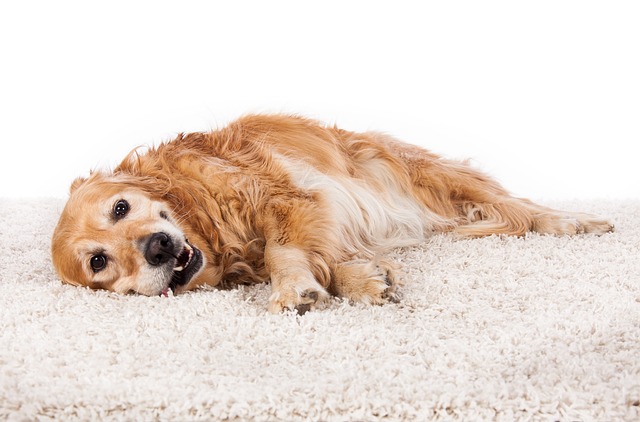
What is glaucoma in a dog?
You might notice your dog squinting more at mealtime or avoiding bright sunlight—these small changes could be early signs of a serious eye condition.
When your beloved dog suddenly loses its former liveliness, becomes loss of appetite, lethargic, and even frequently vomits and diarrhea, you will definitely feel anxious. This is likely due to the dog suffering from gastroenteritis, a common but not to be ignored disease. Dogs cannot speak, they can only use their physical discomfort to convey pain to you, and at this moment, you are their strongest support. Understanding how to deal with gastroenteritis in dogs is the key to providing them with timely assistance and care.
When dogs suffer from gastroenteritis, the symptoms are more obvious. The most obvious symptom is gastrointestinal reactions, with frequent vomiting and diarrhea being typical symptoms. Vomit may be undigested food, mucus, and in severe cases, blood streaks. Diarrhea stool is usually thin, soft, and unformed, and may have abnormal color, sometimes accompanied by an unpleasant odor. In addition to gastrointestinal symptoms, dogs' mental state can also deteriorate. They, who were originally full of vitality, become listless and lose interest in their favorite toys and games. Body temperature may also be abnormal, some dogs may have a fever, while others may have a lower body temperature. Seeing the dog so uncomfortable, the owner's heart is filled with heartache, wishing they could bear these pains for them.
There are various reasons that can cause dogs to develop gastroenteritis. Dietary issues are one of the common factors, such as suddenly changing the brand of dog food, which may cause the dog's digestive system to be unable to adapt, leading to gastroenteritis. Some owners, out of love, feed their dogs too much human food, especially greasy, spicy, and stimulating food, which is a great burden on their fragile digestive system. In addition, consuming spoiled food and foreign objects such as rotten fruits and plastic bags can also easily lead to gastroenteritis. In addition to diet, parasitic infections are also an important cause. Intestinal parasites such as roundworms and tapeworms can parasitize and reproduce in dogs' intestines, damaging the intestinal mucosa and causing inflammation. Bacterial and viral infections should not be underestimated, such as Escherichia coli and parvovirus, which can cause gastroenteritis in dogs.

Once symptoms of gastroenteritis are detected in a dog, the owner should remain calm and take timely measures. Firstly, dogs should be given appropriate fasting and water deprivation, typically for 12-24 hours, to allow their digestive system to rest adequately. However, it should be noted that the water ban time should not be too long to avoid dehydration of the dog. If the dehydration symptoms of the dog are mild, you can feed some warm water in small amounts multiple times; If dehydration is severe, such as decreased skin elasticity and sunken eye sockets, it is necessary to seek medical attention in a timely manner and supplement water and electrolytes through intravenous infusion.
During the dog's fasting period, closely observe any changes in its symptoms. If the symptoms of vomiting and diarrhea do not improve, or if there are other abnormal conditions such as bloody stools, convulsions, etc., it is necessary to take the dog to a pet hospital as soon as possible. Veterinarians usually conduct detailed examinations, including blood routine, stool examination, etc., to determine the cause of the disease, and then develop treatment plans based on specific circumstances. If it is caused by bacterial infection, antibiotics may be used for treatment; If it is a parasitic infection, deworming is necessary; For viral infections, although there is currently no specific medication, supportive therapy can be used to alleviate symptoms and help dogs recover.
Nursing work is crucial in the treatment and rehabilitation process of dogs. After the dog's fasting is over, it can gradually resume its diet. Start with a small amount of easily digestible food, such as millet porridge, chicken mash, etc., follow the principle of eating less and more meals, and avoid feeding too much at one time to increase the burden on the stomach and intestines. As the dog's condition improves, gradually transition back to a normal diet. At the same time, it is necessary to provide a warm, quiet, and comfortable resting environment for dogs, so that they can rest peacefully. Accompanying your dog, gently soothing it, providing emotional support, and making it feel cared for, also has a positive effect on its recovery.
Suffering from gastroenteritis in dogs is a test for both the owner and the dog. During this process, the owner's careful observation, timely action, and patient care are the key to the dog's victory over illness. Every time you accompany your dog to the hospital, prepare food for it, and soothe its emotions, it is a manifestation of your deep love for it. I hope every dog can stay away from the troubles of illness, grow up healthy and happy under the care of its owner, and continue to accompany us through countless beautiful days.

You might notice your dog squinting more at mealtime or avoiding bright sunlight—these small changes could be early signs of a serious eye condition.

Let’s set the scene: It’s a sweltering Phoenix afternoon—105°F outside—and you rushed your 2-year-old Lab mix, Cooper, on a quick walk to “get it over with.”

Let’s get real: You’re in your Miami apartment, watching your 3-year-old Corgi, Loki, struggle to climb the stairs to your second-floor unit.

Many dog owners brush off occasional scratching as just “dog behavior,” but persistent itching often signals something more—like a food allergy.

You might first notice your dog scratching more than usual—chewing at their paws until the fur looks thin, or rubbing their face against the couch nonstop.

Let’s be real: You’re standing in your Chicago apartment, watching your 3-year-old Beagle, Max, huff and puff just to climb onto the couch.